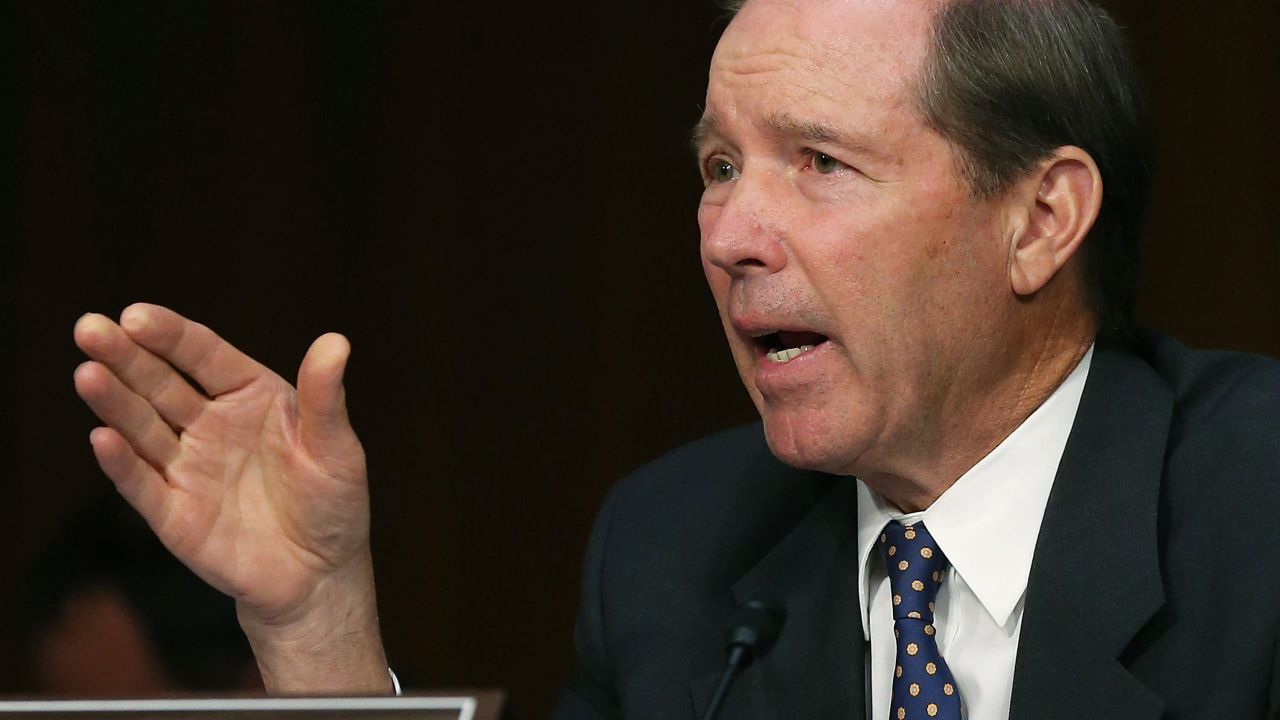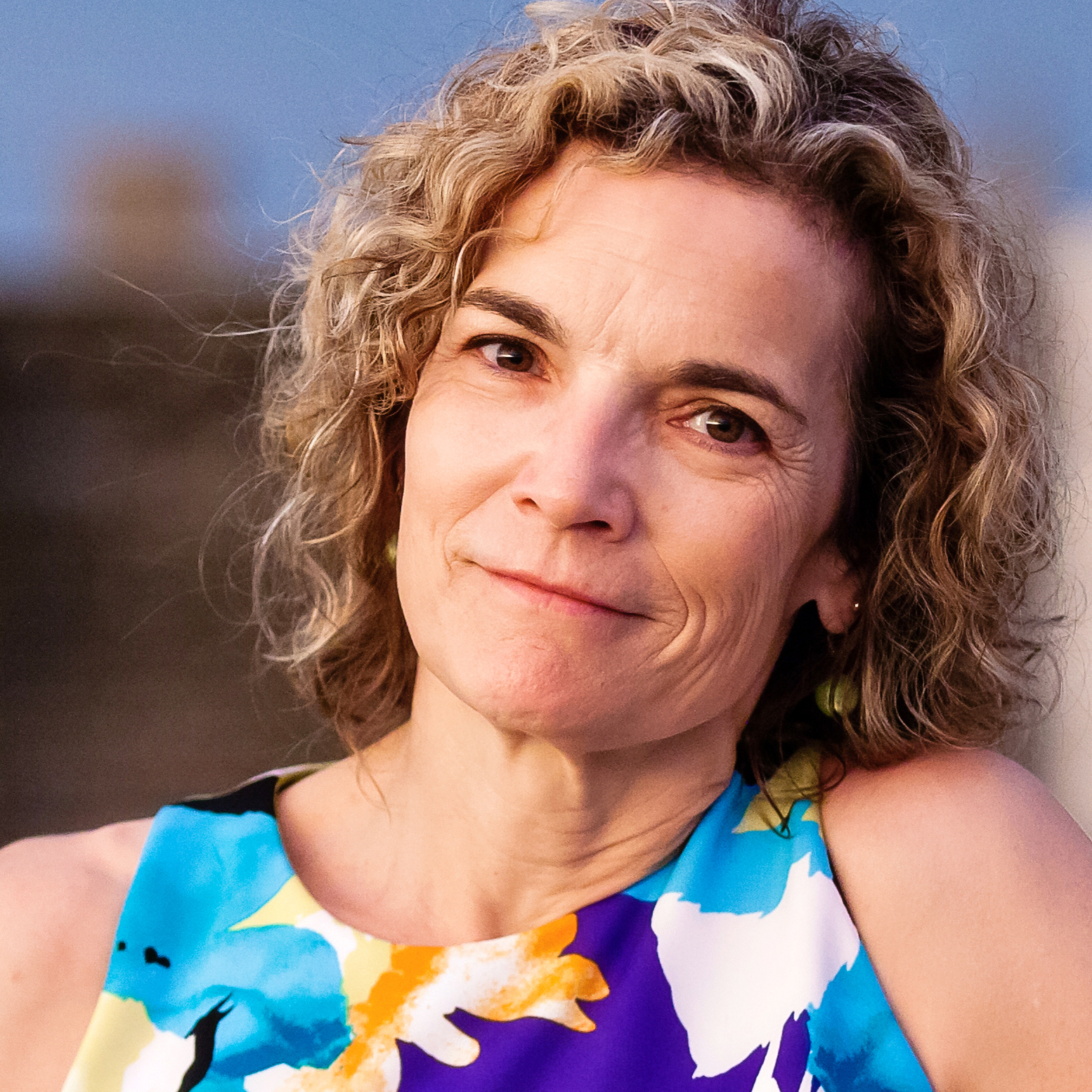
Sen. Tom Udall (D-NM) has for the last three Congresses unsuccessfully pushed for an amendment to roll back the Supreme Court's Citizen's United decision. (Photo: Mark Wilson/Getty Images)
Lanky, athletic Tom Udall doesn’t look like a man in the grips of a Don Quixote-like obsession.
Yet, like the comic-epic hero, the second-term senator from New Mexico is boldly tilting at windmills. For the last three sessions of Congress — ever since the US Supreme Court handed down the 2010 Citizens United ruling that opened the door for corporate entities to make unlimited donations to political campaigns — Udall has doggedly introduced a proposed constitutional amendment to overturn the decision.
It’s going nowhere fast.
This year’s version, S.J. Res. 5, introduced in January, has languished ever since in the Senate Judiciary Committee. That would be the same powerful panel whose Republican chairman, Sen. Chuck Grassley of Iowa, is refusing to hold a confirmation hearing for Merrick Garland, President Barack Obama’s nominee to fill the vacancy on the US Supreme Court.
There’s a reason Grassley can comfortably ignore polls showing overwhelming disgust with the Citizens United ruling on the part of most Americans, some of whom showed up personally at the Capitol earlier this year to voice their feelings:
Of the 40 senators who have signed Udall’s proposed constitutional amendment as co-sponsors, not one is a Republican.
“That’s just tremendously discouraging to me,” says Udall.

Democracy Spring protesters marched on the US Capitol to protest big money in politics and voting rights restrictions. (Photo: Mark Wilson/Getty Images)
It’s not as if the veteran lawmaker, who served five terms in the House before winning election to the Senate in 2008, doesn’t know how to reach across the aisle: Udall recently helped broker a bipartisan compromise that ended a seemingly intractable battle over how to rewrite the nation’s chemical regulations.
Even so, he doesn’t sense any chance of a breakthrough like that happening on campaign finance anytime soon.
“There’s an interest in reform,” Udall said during a recent interview in his Capitol Hill office. He points to the fact that when the Senate did vote on his constitutional amendment — back in the last session of Congress, when Democrats controlled the chamber — a majority of 54 senators voted in favor, which amounted to all of the members of the Democratic caucus (a group that includes independents Angus King of Maine and Bernie Sanders of Vermont). But Udall fell six votes short of the 60 he needed to break a Republican filibuster and got no defectors from the other party. The lack of bipartisan support is making it hard for Udall to convince colleagues to press for action on campaign finance. “People are here to get things done,” he says. “So they look at that and they don’t see a winner.”
Still, Udall keeps plugging away. This spring, he introduced another campaign finance reform measure, this one designed to un-hamstring the Federal Election Commission, now evenly divided along partisan lines.
That bill, S. 2611, has just three co-sponsors: King, the Maine independent, and Democrats Sheldon Whitehouse of Rhode Island and Jeff Merkley of Oregon. It hasn’t budged from the Senate Rules Committee, chaired by Sen. Roy Blunt, a Missouri Republican who, as Democrats in his state like to point out, was for campaign finance reform before he was against it.
Udall says he began agitating for campaign finance reform as far back as the 1990s, when he was New Mexico’s attorney general. “I felt money and big money in politics was a real problem and that it’s changing our democracy.”
To demonstrate how, he only has to consider his own family history.
Udall, 68, is a member of a west-of-the-Rockies political dynasty. His father, Stewart Udall, was a Democratic congressman from Arizona for four terms before joining President John F. Kennedy’s cabinet. Continuing as interior secretary under President Lyndon Johnson, the elder Udall was instrumental in assisting Lady Bird Johnson in her crusade to enhance and preserve the nation’s natural beauty.
After Stewart Udall left his House seat, his brother, Mo Udall, won it. A onetime professional basketball player, Mo Udall served three decades as a member of Congress and ran unsuccessfully for the Democratic presidential nomination in 1976. His son, Mark Udall, served as a Democratic state legislator, congressman and US senator for Colorado until his defeat in 2014.
Another Udall cousin, Republican Gordon Smith, represented Oregon for 12 years in the US Senate.
Six years old when his father was first elected to Congress, Tom Udall waxes nostalgic about the way politicians ran in the 1950s. “I think he raised $5,000 for his first campaign,” Udall says of his dad, whom he recalls holding just one fundraiser a campaign cycle, usually a Saturday night potluck, “maybe two weeks before the election.” The money went for yard signs and slate cards. There were no campaign consultants and certainly no media expenses. “Most of the work was contacting people who were your supporters,” Udall says. “It was all working with people to achieve an electoral result.”
— Sen. Tom Udall
For Udall, who, over the course of his 17 years in Congress has raised and spent more than $20 million, it has been an entirely different experience.
“Now it’s raising money go get on the television and it’s raising vast amounts of money,” he says. The League of Conservation Voters ranks among his biggest donors, according to figures compiled by the nonpartisan Center for Responsive Politics, but his relatively modest-sized leadership PAC, the Southwest Leadership Fund, lists plenty of blue-chip corporate donors, a reflection of Udall’s incumbency and his membership on two Senate committees with sweeping influence over policies that businesses care about: Commerce and Appropriations. “It’s a brutal process,” Udall says. “It’s two years of your life that it dominates. You’re traveling every weekend. You’re on the phone a lot raising money. It’s not a very pleasant prospect.”
And Udall considers himself lucky compared to his cousin, Mark, who lost his reelection bid two years ago in what became one of the nation’s first $100 million Senate races, thanks to an influx of spending by outside groups. In one effort to out the true identities of such “independent” spenders (usually masked under anodyne names like Americans for a Better America that reveal little about political advertisers’ true agenda), Tom Udall, along with a number of Senate colleagues, last year sent a letter to Securities and Exchange Commission Chair Mary Jo White. They asked her to use the SEC’s authority to require publicly traded companies to tell shareholders about their campaign spending. So far, however, she has “declined to do that,” says Udall. He’s not expecting any action soon. “She has abandoned any effort,” he adds. Publicly, White emphasizes the SEC’s need to focus on the financial regulations Congress requires the agency to write. But just to make sure the SEC doesn’t step where some Republicans don’t want it to tread, congressional appropriators specifically prohibited the SEC from doing any political disclosure work this fiscal year, which doesn’t end until Sept. 30.
Meanwhile, the cost of elections continue to escalate, and Udall says that it hampers the ability of Congress to get work done. In any given two-year election cycle, he notes, one-third of his Senate colleagues are on the fundraising merry-go-round. As a result, he says, “They may not have the time and attention to spend on legislation.”
Udall has one key ally on the issue: President Barack Obama has endorsed the proposal to amend the Constitution to allow limits on campaign contributions. Udall wishes, however, that the president would be more proactive. The president could, he says, urge such appointees as Treasury Secretary Jack Lew, Internal Revenue Commissioner John Koskinen and the SEC’s White to use their regulatory authority to rein in dark money groups and demand more transparency about their donors. To the chagrin of other campaign finance advocates, Obama so far has failed to make good on a move he’s said to have been mulling: requiring federal contractors to disclose political donations that currently aren’t reported to the Federal Election Commission. While Udall insists that the president’s “heart is in the right place on this issue,” he concedes, “I don’t see him expending a lot of political capital on it.”
While it may take something outside the political arena to change the dynamic (“Everybody is waiting for the next big scandal,” Udall says), the senator is convinced the appetite is there for reform, even among those who operate successfully in the status quo.
“I think anybody going through one of these electoral cycles has to come away feeling this is not good for democracy,” says Udall. “We need to get back on the older model, when it was more about people and people’s voices.”




